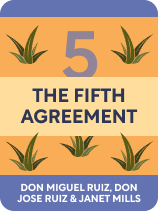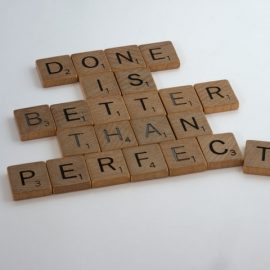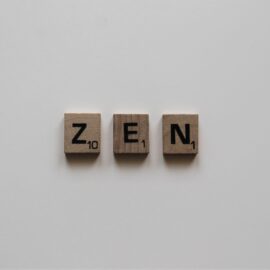

This article is an excerpt from the Shortform book guide to "The Fifth Agreement" by Don Miguel Ruiz. Shortform has the world's best summaries and analyses of books you should be reading.
Like this article? Sign up for a free trial here .
What do the Toltec believe about reality and your perception of it? How does it relate to your suffering and happiness?
In The Fifth Agreement, don Miguel Ruiz and don Jose Ruiz (also known as the naguals) assert that we believe we perceive reality, but the “real world” we think we live in is only a mirage. The Toltec teach that our belief in the mirage contains two primary self-limiting beliefs: that we must always be improving ourselves and that we are individual, physical beings, rather than part of a greater system. These beliefs, they argue, cause us to suffer.
Read more to learn about the Toltec perspective on reality, false beliefs, and happiness.
The Toltec View of Reality
Most of us, the naguals say, aren’t critical of what we perceive and learn. We trust what our culture, society, and teachers tell us, innocently and without reservation. We believe that what we’re seeing is all there is—we think we live in “the real world” and never realize that it’s only a mirage. This is the most common way to live, the naguals say. We’re handed a flawed belief system, and we accept it as-is, limiting ourselves unnecessarily
(Shortform note: The authors suggest that this blind acceptance is almost universal. In A New Earth, spiritualist Eckhart Tolle agrees that, historically, only exceptional religious figures (such as the Buddha, Lao Tzu, and Jesus Christ) have learned to see past the mirage. However, Tolle also suggests that it’s becoming more and more common for people to see the flaws in our societal belief systems—potentially leading to what Tolle calls a “transformation of human consciousness.”)
Living in the mirage is torture, the Toltec say, because our belief in its reality leaves us no escape—we take the picture we’re handed of what the “correct” way to live is and hold ourselves to it. We copy the behaviors, beliefs, and emotions we believe to be “right,” burying our true selves under so many layers of conformity that we forget who we are or what we want. Furthermore, we live in fear that others will see us living “incorrectly” and punish us for it—and we validate that fear by attacking those around us who misbehave.
(Shortform note: Eckhart Tolle argues that the mirage doesn’t just harm us as individuals: It’s also actively destroying our social and physical environments. The values we’re taught to hold, he argues, are insane to the point of self-destruction: Society’s obsession with productivity and profit leads us to abuse and slaughter our own people and jeopardize the livability of our planet. If we want to survive, he says, we must collectively evolve beyond the materialistic values that are driving us apart. Instead, we must put people first.)
According to the Toltec, our belief in the mirage contains two primary flaws. First, we believe we’re imperfect. Second, we believe we’re separate individuals. These two self-limiting beliefs, the Toltec say, lie at the root of our suffering. Let’s look at each belief in detail.
We Believe We’re Imperfect
According to the authors, much of our unhappiness arises from the self-limiting belief that we must always be improving ourselves: that it’s wrong to believe we’re good enough as we are.
(Shortform note: In the Tao Te Ching, Lao Tzu takes a bold stance on this kind of self-evaluation: He argues that there is no “good” or “bad” in the first place—no “enough” or “not enough.” All that exists comes from the same source—it’s all part of the Tao, the universe, God, or whatever you prefer to call it—so it’s all equally valid and doesn’t need constant improvement.)
When you live in the mirage of “the real world,” the Toltec say, you struggle with self-criticism and self-doubt because you think they’re your fault. You’re focused on the many ways in which you fail to live up to the standard of expectations set by your culture—the ways in which you’re “good” and “bad.” You feel you have much to be ashamed or embarrassed about: Perhaps you didn’t get married early enough, your career isn’t as successful as it “should” be, or you don’t own a house. Whatever your hangups, you’re stuck in the gap between what you should be and what you are. You’re focused, primarily, on what you aren’t.

———End of Preview———
Like what you just read? Read the rest of the world's best book summary and analysis of Don Miguel Ruiz's "The Fifth Agreement" at Shortform .
Here's what you'll find in our full The Fifth Agreement summary :
- The five “agreements” to make with yourself that adjust your outlook
- How to rediscover your true self and recapture the freedom you felt as a child
- A five-step process to escape the mirage of “the real world”






